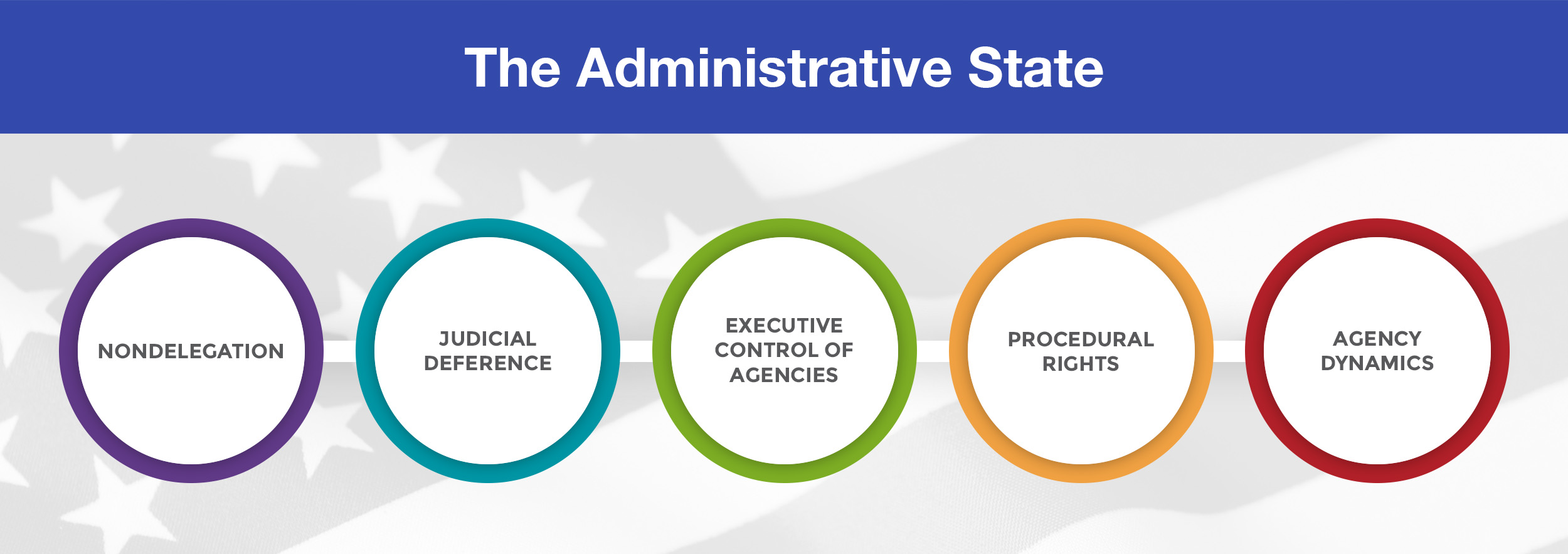Arguments against the nondelegation doctrine, and in favor of delegation: Increasing complexity of society requires Congress to delegate

| Five Pillars of the Administrative State |
|---|
| Nondelegation |
| •Nondelegation doctrine • Timeline • Court cases • Arguments for and against • Reform proposals • Scholarly work |
| More pillars |
| • Judicial deference • Executive control of agencies • Procedural rights • Agency dynamics |
| Click here for more coverage of the administrative state on Ballotpedia.
|
| Click here to access Ballotpedia's administrative state legislation tracker. |
Boston University School of Law professor Gary Lawson wrote in a 2001 law review article, "The nondelegation doctrine may be dead as doctrine, but it is very much alive as a subject of academic study."[1] This page captures one of the main arguments that have been advanced against the traditional interpretation of the nondelegation doctrine (or, conversely) in favor of delegation of at least some legislative powers to executive branch agencies.
The nondelegation doctrine is a principle of constitutional and administrative law that holds that legislative bodies cannot delegate their legislative powers to executive agencies or private entities. That means that lawmakers cannot allow others to make laws.
There are eight main arguments for delegation and against the traditional nondelegation doctrine:
- The Constitution does not explicitly forbid delegating legislative power
- Rulemaking is not the same as lawmaking
- The U.S. Supreme Court has upheld virtually every statute challenged on nondelegation grounds
- Agency law rules permit delegation
- The increasing complexity of society requires Congress to delegate to do its job
- Allowing executive agencies to exercise the discretion legislative delegation confers lets them adjust to unintended consequences
- Advocates of the nondelegation doctrine actually oppose expansive federal regulations
- Statutes giving open-ended authority to executive or judicial actors are not delegations
Increasing complexity of society requires Congress to delegate to do its job
As technology changed the nature of the American economy first during the Industrial Revolution and later after the spread of the internet and smartphones, some argued that the federal government had to change to meet new challenges. Beyond that, Cynthia R. Farina has argued that the American people support empowering administrative agencies to handle complex regulatory burdens. This is expanded upon in the following claims.
Claim: agency rulemaking is required to achieve Americans’ goals
- Farina argued in a law review article that diverse policy concerns require decision making by agencies because the sheer size and complexity of the federal regulatory enterprise defeats rational, coordinated, democratically responsive decision making by Congress or the President’s staff.[2]
Claim: the American people want an active federal government
- Farina claimed in a law review article that public opinion polls reveal solid and stable majority support for federal engagement in environmental, health and safety, and economic issues.[2]
Footnotes

